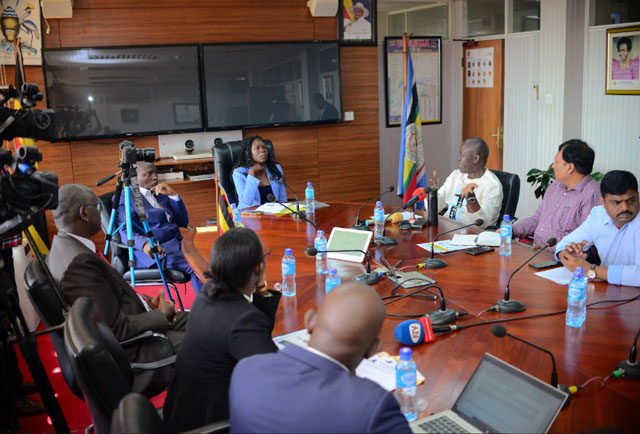
The issue of alcohol has an economic, social and health impact on society and we must strike a balance in the bill
Kampala, Uganda | THE INDEPENDENT | The Uganda Alcohol Industry Association has brought to the attention of the Minister of State for Investment Evelyn Anite and the Minister of State for Trade David Bahati about the gaps in the Alcohol Drinks Control Bill 2023, which seeks to regulate the manufacture, importation, and sale, consumption, and advertisement of alcoholic drinks in Uganda.
Members of the association pointed out untenable clauses that need to be reviewed due to the negative impact they pose on the economy and the industry once enacted into law.
Key among their concerns in the proposed bill is the exclusion and/or non-regulation of native liquor which accounts for 65% of the alcohol produced and 50% of market share, the shift of the implementation mandate from the Ministry of Trade, Industry and Cooperatives to the Ministry of Health and the requirement for additional licensing for manufacturers and sellers of alcohol beverages in the alcoholic industry.
They were also sceptical of the clause on operating hours (5 pm to 10 pm on weekdays) as well as of the requirement to verify ages for online sale of alcoholic drinks. The association warned of a ripple effect to the economy citing several people and businesses within the value chain that would be affected by the intended law.
“We agree to the need for industry regulation however it should be done fairly so as not to stifle the economy. The bill poses adverse impacts on manufacturers and the value chain and yet does not address the issue of illicit alcohol which constitutes 65% of total alcohol consumed in the market but is not regulated,” said Onapito Ekomoloit, the former Chairman of Uganda Alcohol Industry Association.
Onapito implored the ministers to ask the Parliament to reconsider, or even withdraw the bill.
He emphasized, “We are talking about an industry that contributes over Shs1.1tn in taxes, the value chain cuts across the backbone of the economy, we need to be careful how we regulate this industry,” added Onapito.

Bahati, while addressing their concerns, lauded the members for raising the issue of illicit alcohol due to its diverse implications on revenue and standards. However, he also tasked the association to provide counterproposals to the bill in question as a way of resolving the issues objectively.
“We as a government are concerned about illicit alcohol for both its safety and revenue. We need to come out strongly against the sale of illicit alcohol to protect our people,” Bahati said.
As one of the most affected sectors, the Chairman of Legit Bar, Entertainment and Restaurant Owners Association (LEBRA), Tesfalem Gherahtu, presented statistics from a study carried out from 50 bars in Kololo and Nakasero. Gherahtu noted that over 45,000 employment opportunities were availed and US$34million worth of annual payments spread across salaries, raw materials, casual workers, DJs, and suppliers amongst others, would be rendered jobless once these restrictions to the night economy are put into consideration.
Anite committed to a dialogue with the Health and Tourism Trade and Industry committees of parliament around the financial impact of the bill.
“The issue of alcohol has an economic, social and health impact on society and we must strike a balance when addressing the implications of the Bill,” she added.
 The Independent Uganda: You get the Truth we Pay the Price
The Independent Uganda: You get the Truth we Pay the Price



